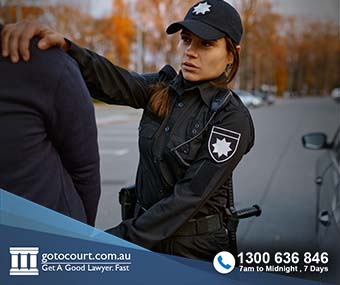How Cooperation With Police Can Reduce Your Sentence
When pleading guilty, the two most common questions asked are, “what will my sentence be?” and “what can I do to reduce it?” The legislation which governs sentencing in Queensland is the Penalties and Sentences Act 1992 (PSA). The main items your lawyer will typically advise on are a timely plea of guilty, demonstrated remorse and acts or evidence of personal rehabilitation. Less well known (and often overlooked) is cooperation with police and the assistance that you might be able to provide in the prosecution of other persons or entities.
Cooperation with police can reduce your sentence by up to 50%, which is a bigger reduction than you will receive based on any other factor. The PSA provisions relevant to this reduction are 13A and 13B.
How much can a sentence be reduced?
In the matter of R v Thompson (1994) 76 A Crim R 75 the Court considered the offender’s cooperation with police and the significance of information supplied, which assisted the police to solve many other crimes. The Court agreed that if the offender was responsible for the implication of others, substantial discounts could be made in relation to the sentence that would have otherwise been imposed. The Court referred to the the Western Australia case of Hayes (1981) 3 A Crim R 286 wherein Burt CJ remarked:
“It is well recognised and has always been that informers can be of enormous value in the detection of crime and in the bringing of offenders to justice. Some would say that for the purpose their use is essential…”
“… should it appear that the information given has been of substantial assistance in the detection of crime and in the conviction of offenders, and that the disclosures made have been full and frank, then when he comes to be sentenced, some allowance should be made on that account. In a number of reported cases it appears that the allowance has been substantial and it has resulted in a reduction in the sentence of 50 per cent or even more. But each case must of necessity rest upon its own facts.”
In R v Gladkowski , the Queensland Court of Appeal stated:
“The necessity of encouraging persons to inform so that offenders may be convicted is regarded as a matter of “high public policy”… “discounts of one-third or even one-half of the sentence that would otherwise be appropriate are not uncommon, according to the value and risk of the assistance rendered”.
In R v Galeano , the Court went as far as stating that there is no fixed “floor” or “ceiling” for the discount that may be accorded on account of cooperation.
Cooperation under Section 13A
Section 13A of the PSA deals with the reduction of sentences because the offender has promised cooperation with police. For this provision to apply to a sentence, the offender must (1) sign a statement deposing to the evidence they can give against another person and (2) sign an undertaking (effectively a promise) to the court that they will, if called upon by the Prosecution, give evidence at Trial against another person or entity.
This means that the person would be placed in the witness stand at the accused’s Trial and be required to give evidence under oath or affirmation. They would be deemed to have breached their undertaking if they refuse to give evidence in accordance with the undertaking or if they give evidence that is ultimately contrary to the statement that they provided to the Prosecution.
Even if the prosecution ultimately chooses not to call you as a witness, you will still be afforded the reduction of your sentence.
Cooperation under Section 13B
Section 13B of the PSA deals with the reduction of a sentence because an offender has provided significant cooperation with police in investigating other offences. A reduction of a sentence under this section works in the same way as under Section 13A. However, it differs because it does not require the person to sign an undertaking to the court to give evidence at another person’s trial. Furthermore, the cooperation provided must be deemed ‘significant’.
Once the cooperation with police has concluded, police will provide what is called a Letter of Comfort which will be tendered to the Court at sentencing. The value of the cooperation and its impact on the sentence is calculated after the Judge or Magistrate has heard submissions from defence and prosecution.
How do I offer my cooperation with police?
If you wish to consider offering cooperation with police, then we strongly recommend that you speak to a lawyer first. Navigating such a task is difficult and must be done in a way that maximises the value of your cooperation and minimises the security risk to you. It is not uncommon for the prosecution to downplay the value of a person’s cooperation or for the Police to fail to follow through with critical tasks.
If your cooperation is the type that falls under Section 13A then other persons will likely learn of your actions when they are served with your statement. For obvious reasons this could present a safety risk to you. The police may be able to provide you with witness protection, and this should be arranged through a lawyer.








